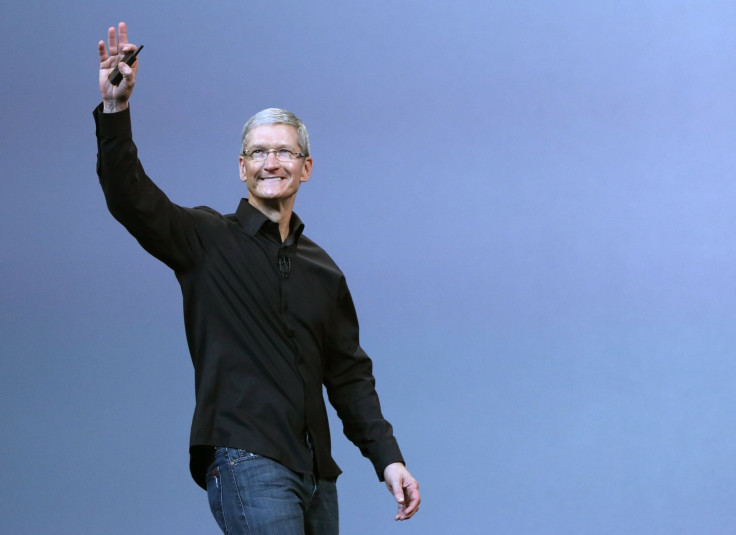For LGBT Workforce, Apple CEO Tim Cook Identifying As Gay Is A Monumental Shift, Activists Say

Todd Sears had been openly gay for years when he moved to New York City to work on Wall Street in 1998. Yet by his second week on the job, Sears was suddenly back in the closet. He had overheard his managing director call a colleague a “f-----,” and Sears decided to conceal his sexuality rather than face workplace discrimination. “I was trying to hide who I was,” he recalled.
A decade-and-a-half later, Corporate America has made significant strides in promoting diversity and reducing discrimination against employees. Nearly all Fortune 500 companies have policies to ensure equality based on sexual orientation (as well as race and gender), and many corporations are increasingly vocal in opposing state and federal policies that would limit the rights of LGBT people.
In this era, the news that Apple Inc. CEO Tim Cook -- one of the world’s most influential executives -- identified himself as gay on Thursday struck many people as somewhat mundane. In U.S. cubicles and boardrooms, “the focus soon went back to why Apple Pay is doing so well, or to quarterly earnings,” said Sears, who eventually left his Wall Street job and later founded Out Leadership, a global strategic firm that advises corporations on LGBT issues.
Yet Sears and other activists say Cook’s announcement is monumental for America’s gay workforce. Despite years of improvements to corporate policies, many employees still find themselves in the same spot Sears was in 1998. More than half of all LGBT workers are closeted on the job because they fear discrimination or unequal treatment, according to the Human Rights Campaign, a national civil rights organization.
“There’s a good deal of the country where an announcement such as [Cook’s] could get you fired,” Beck Bailey, the campaign’s deputy director of employee engagement, said. No federal law prohibits companies from firing people on the basis of sexual orientation, he noted, and only 21 states have adopted their own anti-discrimination policies. That means in 29 states, workers can still be legally fired for being gay.
Even among those employees who are out, the majority “cover up” their sexual identities by refraining from talking about their personal lives or changing pronouns when describing partners, according to a survey of lesbian, gay and bisexual people by New York University and Deloitte, a financial services and consulting firm.
Many of those surveyed said that hiding or lying about their sexuality affected their performance at work and hindered their sense of opportunity for job growth. Some said it diminished their commitment to the organization.
“If I’m not out at work, I have some sense of a barrier between myself and my colleagues, and that kind of chilling to a relationship -- even though it can be very subtle -- does have a direct impact on my ability to rise within the company,” Bailey said.
In his Oct. 30 essay in Bloomberg Businessweek, Cook acknowledged the benefits of working in an inclusive environment. “I’ve had the good fortune to work at a company that loves creativity and innovation and knows it can only flourish when you embrace people’s differences. Not everyone is so lucky,” he wrote.
Christie Smith, who worked on the NYU-Deloitte survey and is managing partner of Deloitte University’s Leadership Center for Inclusion, said that for many of the respondents, the way to break the pattern of “covering up” is relatively simple: Have more corporate leaders who are openly gay.
“These individuals are dying to see someone who looks like them at the top,” she said. “They’re really looking for role models in their organization that they can aspire to be. … It has a tremendous impact [on the workplace] when a senior leader reveals who they are.”
Cook’s coming out could also make it easier for gay senior executives to be promoted to the top slot, Sears said. “There’s an entire generation of C-suite leaders, one step below the global CEO, who are out,” he said. “If Tim Cook can be openly gay, it basically shows that maybe it’s not going to be a risky thing to promote these other leaders.”
© Copyright IBTimes 2024. All rights reserved.











